IRS Announces New COVID Tax Relief!
IRS Announces New COVID Tax Relief!
IRS providing broad-based penalty relief for certain 2019 and 2020 returns due to the pandemic with $1.2 billion in penalties being refunded to 1.6 million taxpayers.
On August 24, 2022 the Internal Revenue Service issued Notice 2022-36, 2021-15 I.R.B. 986 to help struggling taxpayers affected by the COVID-19 pandemic providing penalty relief to most people and businesses who file certain 2019 or 2020 returns late. The IRS announced that it is also taking an additional step to help those who paid these penalties already. The IRS states that nearly 1.6 million taxpayers will automatically receive more than $1.2 billion in refunds or credits with many of these payments will be completed by the end of September 2022.
“Throughout the pandemic, the IRS has worked hard to support the nation and provide relief to people in many different ways,” said IRS Commissioner Chuck Rettig. “The penalty relief issued today is yet another way the agency is supporting people during this unprecedented time. This penalty relief will be automatic for people or businesses who qualify; there’s no need to call.”
The relief applies to the failure to file penalty. The penalty is typically assessed at a rate of 5% per month and up to 25% of the unpaid tax when a federal income tax return is filed late. This relief applies to forms in both the Form 1040 and 1120 series and Forms 1041, 1065 and 1120-S. All qualifying forms are listed in the Notice. To qualify for this relief, any eligible income tax return must be filed on or before September 30, 2022.
The Notice also provides details on relief for filers of various international information returns, such as those reporting transactions with foreign trusts and receipt of foreign gifts (Form 3520); and ownership interests in foreign corporations (Forms 5471 and 5472). To qualify for this relief, any eligible tax return must be filed on or before September 30, 2022.
In addition, the Notice also provides penalty relief to banks, employers and other businesses required to file various information returns, such as those in the 1099 series. To qualify for relief, the notice states that eligible 2019 returns must have been filed by August 1, 2020, and eligible 2020 returns must have been filed by August 1, 2021. Because both of these deadlines fell on a weekend, a 2019 return will still be considered timely for purposes of relief provided under the notice if it was filed by August 3, 2020, and a 2020 return will be considered timely for purposes of relief provided under the notice if it was filed by August 2, 2021. The notice provides details on the information returns that are eligible for relief.
However, penalty relief is not available where a fraudulent return was filed, where the penalties are part of an accepted offer in compromise or a closing agreement, or where the penalties were finally determined by a court. Other penalties, such as the failure to pay penalty and delinquent FBARs, are not eligible but there are other programs existing in IRS which taxpayers may be able to utilize to successfully abate other penalties not covered under the Notice. To see if you would qualify for relief in other IRS programs, you should check with tax counsel having experience in IRS penalty abatements.
An Opportunity For Taxpayers Who Owe The IRS.
Do not think that if you owe the IRS your tax problem will disappear because of the IRS has been back-logged from the pandemic. Instead you should be utilizing this valuable time to get yourself prepared so that when IRS enforcement activity regains momentum, you are ready to make the best offer or proposal to take control of your outstanding tax debts.
As a prerequisite to any proposal to the IRS, you must be in current compliance. That means if you have any outstanding income tax returns, they must be completed and submitted to IRS. Also, if you are required to make estimated tax payments, you must be current in making those payments.
Remember that COVID-19 does not alter the tax laws, so all taxpayers should continue to meet their tax obligations as normal. Individuals and businesses should keep filing their tax returns and making payments and deposits with the IRS, as they are required to do.
Also, the IRS will continue to take steps where necessary to protect all applicable statutes of limitations. In instances where statute expirations might be jeopardized during this period and a taxpayer is not agreeing to extend such, the IRS will issue Notices of Deficiency and pursue other similar actions to protect the interests of the government in preserving such statute.
The Bottom Line For Taxpayers.
If you are having a tax issue, don’t go silent. Don’t ignore the notice arriving in your mailbox. Tax problems don’t get better with time. Click here for the KahnTaxLaw Coronavirus Resource Center for more information on COVID-19 tax relief.
What Should You Do?
You know that at the Law Offices Of Jeffrey B. Kahn, P.C. we are always thinking of ways that our clients can save on taxes. If you are selected for an audit, stand up to the IRS by getting representation. Tax problems are usually a serious matter and must be handled appropriately so it’s important to that you’ve hired the best lawyer for your particular situation. The tax attorneys at the Law Offices Of Jeffrey B. Kahn, P.C. located in Orange County (Irvine), San Diego County (Carlsbad) and elsewhere in California are highly skilled in handling tax matters and can effectively represent at all levels with the IRS and State Tax Agencies including criminal tax investigations and attempted prosecutions, undisclosed foreign bank accounts and other foreign assets, and unreported foreign income. Also if you are involved in cannabis, check out what a cannabis tax attorney can do for you. And if you are involved in crypto currency, check out what a bitcoin tax attorney can do for you.


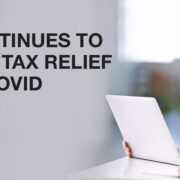

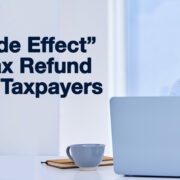

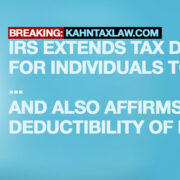
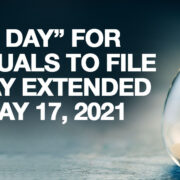
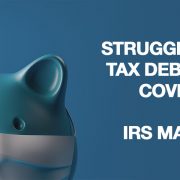


 Follow
Follow Follow
Follow